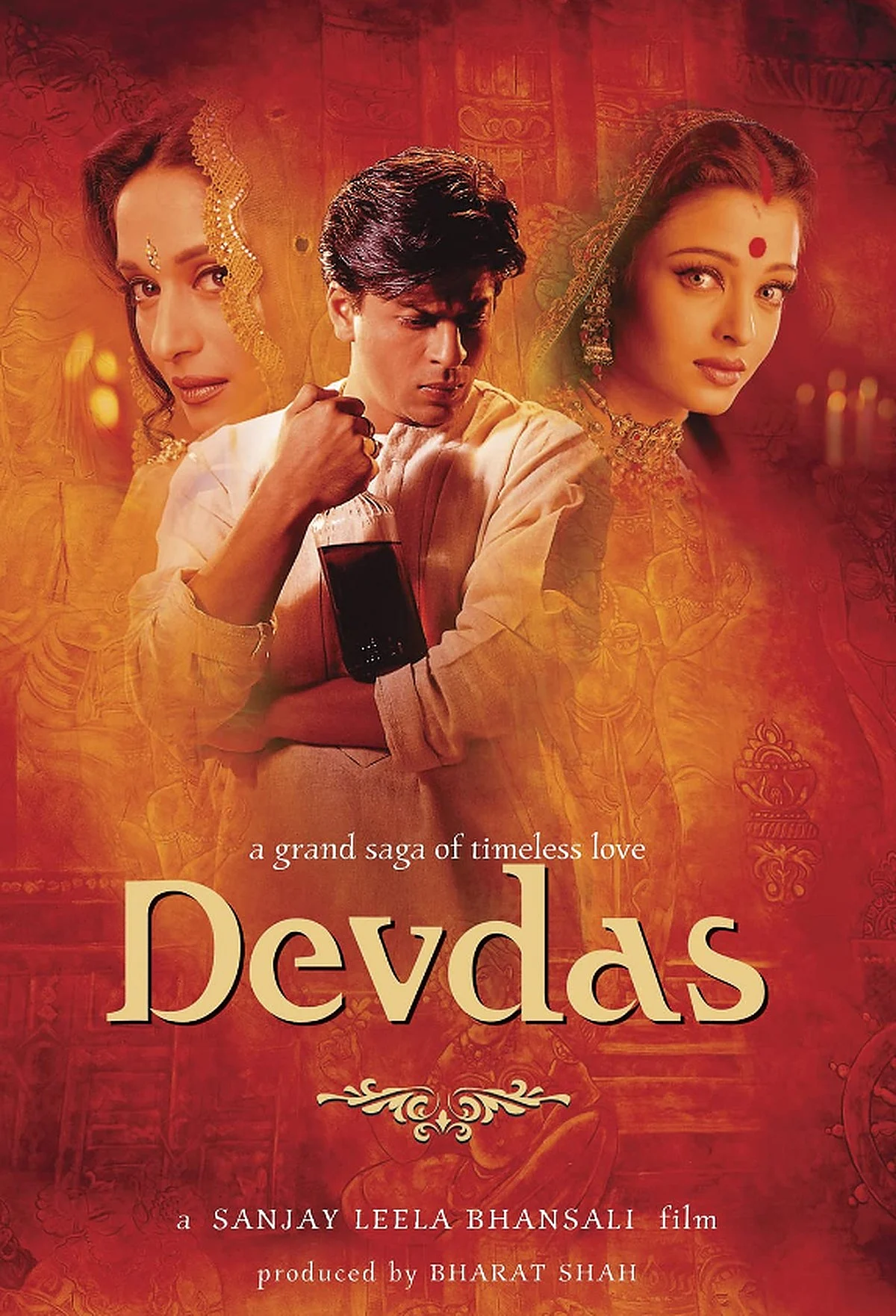Revisiting Devdas as it turns 21
Sanjay Leela Bhansali's Devdas is an enchanting romantic tragedy that nourishes the viewer's senses with exotic life-giving visuals and emotions

Sanjay Leela Bhansali's exquisite adaptation of Sarat Chandra Chatterjee's classic romantic tragedy leaves one with a feeling of elation and satiation. It confirms the director's faith in the power of the visual medium to create poetry out of melodrama and the audience's faith in Bhansali as one of the most gifted filmmakers mainstream Hindi cinema has produced.
After Hum Dil De Chuke Sanam, Bhansali has created an enchanting romantic tragedy that nourishes the viewer's senses with exotic life-giving visuals and emotions.
Devdas is one of the most outstanding products of the much-maligned Bollywood’s Theatre of Abundance. It is rich in visual details -- and hats off to Nitin Desai for his sets and Abu-Sandeep, Neeta Lulla and Reza Sharifi for their classy costumes.
The characters don't just move in their breathtaking ornate clothes that seem to have been spun from the most exquisite threads obtainable. Bhansali's characters speak and sing to the viewer.
The opulence never smothers the immensity of Chatterjee's emotional tragedy. Hence the film requires at least two viewings for one to understand the visual and emotional layers the narration secretes.
In telling the story of Devdas' doomed love for Paro, Bhansali goes beyond places where legendary Bimal Roy had taken the original text in his make of the classic in the 1950s.
In fact, the sequences Bhansali has invented to corroborate Devdas' tragic romantic karma are the film's highlights. Whether it's the whole ritual of bringing Devdas' two women, Paro and Chandramukhi, together for a mesmerising dance, or a drunken Devdas performing his own shraddha (last rites) in a hair-raising negation of life, Bhansali's original ideas beautify the film's grand literary antecedents.
One of Bhansali's brainwaves is Paro's wedding where Devdas arrives in time to give away the bride in a loveless arranged match. Accompanied by Kavita Krishnamurthy's singing, it is vibrantly melancholic and evokes W.B. Yeats' poetry.
Great art isn't about creating poetic moments. These moments have to be made tenable so that the man in the remotest corner of the theatre responds to it instinctively. That's the magic Bhansali creates in Devdas.
The film brings a "commercial" grandiosity to the tale without sacrificing the original's tragic timbres. The sheer grandeur of Bhansali's storytelling is perhaps unmatched by any previous Indian film including Hum Dil De Chuke Sanam.
The famous finale from Chatterjee's novel where the dying Devdas breathes his last in front of his beloved's home has been retained but reinvented.
Embellishing Paro's long run from the inside of her in-laws' mansion to the outer courtyard with top shots that capture the imposing pillars and sprawling courtyard, the moment of Devdas' death is fluently and flamboyantly rendered high art of the kind never seen before.
Taking the feudal splendor and leisurely mood of early 20th century Kolkata into a timeless setting, Bhansali has built an edifice of resplendence. The early romantic sequences between the London-returned Devdas and his childhood sweetheart Paro are designed with operatic grace.
Credit must go to the casting that is peerless. Aishwarya Rai and Madhuri Dixit impart certain timelessness to their roles of the beloved and the courtesan. In what's possibly the best written and choreographed courtesan's role since Meena Kumari's in Pakeezah, Dixit gleams with a graceful aura.
But it's Rai who attains legendary proportions in this film. Whether it's the tragic or romantic moments or spellbinding dances, Rai brings in the supple sprightliness of a deer gambolling in the deep forests. Her eyes are crystal-blue pools that change colours according to her character's moods. She should call it quits now, unless Bhansali signs her for his next film. As to whether Shah Rukh Khan is apt as the complex, confused, masochistic Devdas, the answer is an emphatic yes.
Follow us on: Facebook, Twitter, Google News, Instagram
Join our official telegram channel (@nationalherald) and stay updated with the latest headlines